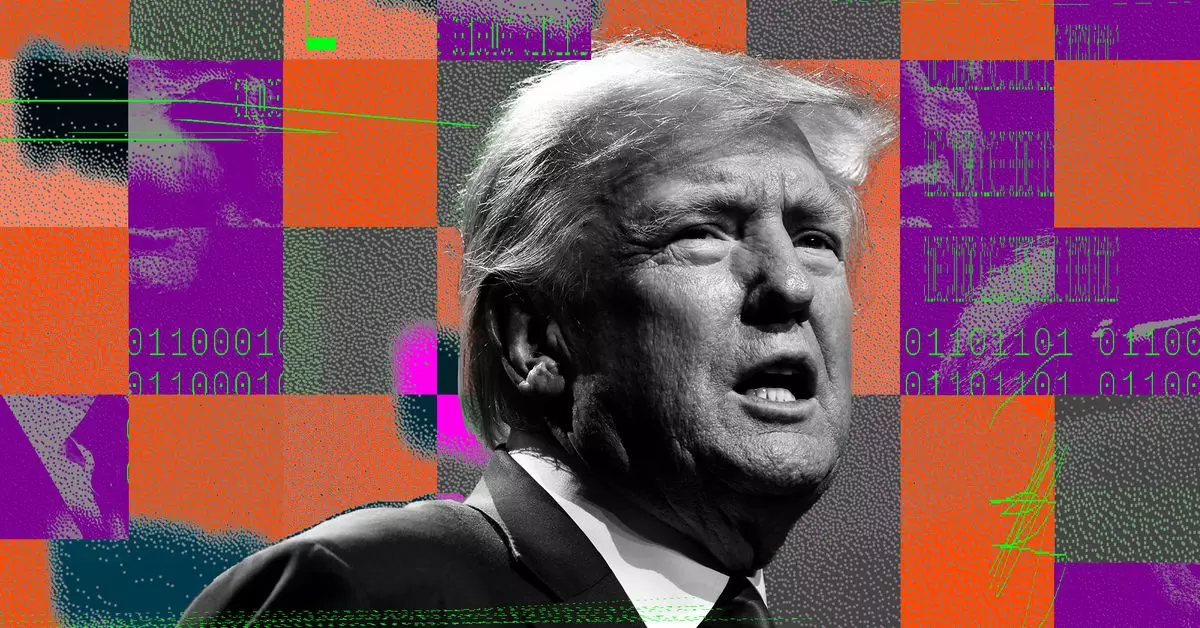In the intricate world of U.S. politics, few issues have garnered as much attention as the fate of TikTok amidst national security concerns. With over a decade of experience in the tech industry, the implications of a potential ban and the ongoing negotiations have become even more significant with President-elect Donald Trump positioning himself as a pivotal figure in this debate.
At the heart of the current discourse is Donald Trump’s request to the Supreme Court for the opportunity to negotiate an arrangement aimed at saving TikTok from an impending ban. By submitting an amicus brief, Trump claims that he possesses not only the essential negotiation skills but also the political mandate necessary to resolve the TikTok situation. He asserts that only he can effectively spearhead discussions aimed at safeguarding the platform, which has quickly risen to become a major player in the social media landscape.
Trump’s assertive claim is not without merit. His administration’s previous push to ban TikTok was rooted in concerns over national security, primarily due to the app’s Chinese ownership through ByteDance. As the Supreme Court prepares to hear a case that challenges the constitutionality of a Congressional bill aimed at banning the app, the stakes are escalating. The bill, which grants significant discretion to the president in delaying enforcement, reflects the high level of political turmoil surrounding TikTok’s existence in the U.S.
A crucial component of this debate revolves around the January 19th deadline, a date that acts as a ticking clock for Trump’s proposed negotiations. The urgency is amplified by the fact that this deadline falls just one day before he is set to take office once again. In his brief, Trump seeks to halt the enforcement of the bill, arguing that a negotiated agreement could render the Supreme Court’s decision on the First Amendment question moot. This legal maneuvering highlights the complexities entwined in what is primarily seen as a pressing tech and security issue.
However, the details of Trump’s proposed deal remain ambiguous. The most likely scenario seems to involve ByteDance divesting a substantial portion of its stake in TikTok to a U.S. entity, effectively mitigating the concerns regarding Chinese control. This brings forth questions about the feasibility and implications of such a transaction. It underscores the intricate interplay of corporate interests and national security considerations in a rapidly evolving digital age.
Adding layers to this already multifaceted issue are the opinions and actions of key political figures. Despite Trump’s overtures towards TikTok, there is substantial bipartisan pressure for action against the app. Prominent politicians, including Senate Minority Leader Mitch McConnell and Representative Ro Khanna, along with 22 U.S. states, have called on the Supreme Court to bypass TikTok’s appeal and uphold the ban. This opposition reveals a deeply divided opinion within U.S. governance regarding the content moderation and regulatory oversight of foreign-owned platforms.
The politicization of TikTok is mirrored by its cultural significance. Trump has previously critiqued the platform but now claims to recognize its value as a medium for political expression and engagement. With over 14 million followers, his involvement with the platform further emphasizes the unique position he holds in this debate. The juxtaposition of his past and present attitudes highlights the shifts in political strategy as social media’s role in shaping public discourse has become increasingly salient, especially in the context of the upcoming elections.
In examining the implications of this legal battle, we must also consider broader discussions surrounding social media regulation. Citing examples like Brazil’s temporary ban on the platform known as X (founded by Elon Musk), Trump’s framing of TikTok’s potential ban as a “historic danger” deserves scrutiny. It begs the question of the responsibilities and powers governments should wield in regulating digital platforms, particularly when they intersect with individual freedoms and political expression.
As the diplomatic tussle over TikTok continues, it becomes clear that the resolution of this issue is more than a singular tech concern; it’s emblematic of the larger tensions in an increasingly digital democracy. Whether Trump’s negotiations will be fruitful or if TikTok’s fate is sealed under growing bipartisan pressure remains to be seen. What is undeniable, however, is that this battle encapsulates the intricate nexus between technology, politics, and public sentiment that defines contemporary American society.

